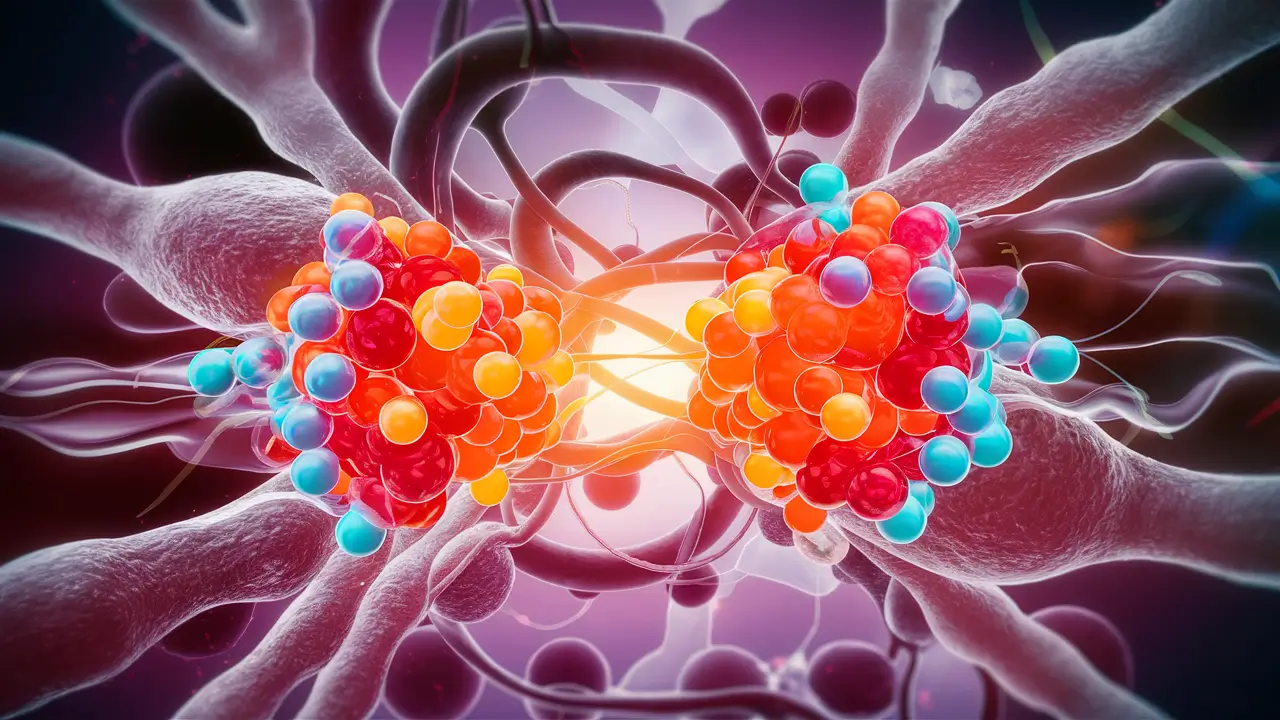Ketosis: Unlocking Your Body’s Fat-Burning Potential

In recent years, the ketogenic diet has gained significant popularity among health enthusiasts and those seeking effective weight loss solutions. At the heart of this dietary approach lies a metabolic state known as ketosis. But what exactly is ketosis, and why has it become such a buzzword in the health and wellness community? As a nutritionist specializing in ketogenic diets, I’m here to demystify ketosis and explore its potential benefits and considerations.
What is Ketosis?
Ketosis is a metabolic state in which your body primarily uses fat for fuel instead of carbohydrates. Normally, your body relies on glucose (sugar) from carbohydrates as its main energy source. However, when you significantly reduce your carbohydrate intake and increase your fat consumption, your body adapts by shifting to an alternative fuel source: ketones.
Ketones are produced in the liver from fatty acids when glucose is in short supply. These molecules can cross the blood-brain barrier, providing an efficient energy source for your brain and other organs. This shift in metabolism is what defines the state of ketosis.
The Science Behind Ketosis
To understand ketosis, we need to delve into the biochemistry of energy production in our bodies. Here’s a simplified breakdown of the process:
- Carbohydrate Restriction: When you drastically reduce your carbohydrate intake (typically to less than 50 grams per day), your body’s glucose stores (glycogen) become depleted.
- Insulin Decrease: As glucose levels fall, insulin levels also decrease. Insulin is the hormone responsible for facilitating glucose uptake in cells and inhibiting fat breakdown.
- Fat Mobilization: With lower insulin levels, your body starts to break down stored fat for energy. This process is called lipolysis.
- Ketone Production: The fatty acids released during lipolysis are transported to the liver, where they are converted into ketone bodies: acetoacetate, beta-hydroxybutyrate (BHB), and acetone.
- Ketone Utilization: These ketones are then released into the bloodstream, where they can be used by various tissues, including the brain, heart, and muscles, for energy.
The transition into ketosis typically occurs within 2-4 days of significant carbohydrate restriction, although the time can vary depending on individual factors such as metabolism, activity level, and body composition.
Benefits of Ketosis
The ketogenic diet and the resulting state of ketosis have been associated with numerous potential health benefits. While more research is needed to fully understand the long-term effects, here are some of the most promising advantages reported in scientific literature and anecdotal evidence:
1. Weight Loss
One of the primary reasons people turn to ketogenic diets is for weight loss. Ketosis can be an effective tool for shedding excess pounds due to several factors:
- Appetite Suppression: Ketones have been shown to have an appetite-suppressing effect, potentially leading to reduced calorie intake.
- Increased Fat Burning: By definition, ketosis increases the body’s ability to use fat for fuel, which can accelerate fat loss.
- Preservation of Lean Mass: Some studies suggest that ketogenic diets may help preserve lean muscle mass during weight loss compared to other diets.
2. Improved Insulin Sensitivity
Ketosis can lead to improved insulin sensitivity, which is beneficial for individuals with type 2 diabetes or those at risk of developing it. By reducing carbohydrate intake and stabilizing blood sugar levels, the body becomes more responsive to insulin.
3. Enhanced Mental Clarity and Focus
Many people report improved cognitive function when in ketosis. This could be due to the brain’s efficient use of ketones for energy and the stabilization of blood sugar levels, which can reduce brain fog and improve concentration.
4. Increased Energy and Endurance
Once adapted to using ketones for fuel, many individuals experience more stable energy levels throughout the day. Some athletes also report improved endurance during long-duration activities.
5. Potential Neuroprotective Effects
Emerging research suggests that ketosis may have neuroprotective properties, potentially benefiting individuals with neurological disorders such as epilepsy, Alzheimer’s disease, and Parkinson’s disease.
6. Reduced Inflammation
Some studies indicate that ketosis may help reduce inflammation in the body, which is associated with various chronic diseases.
Achieving and Maintaining Ketosis
Entering and maintaining a state of ketosis requires careful attention to your diet and lifestyle. Here are some key strategies:
1. Drastically Reduce Carbohydrate Intake
To enter ketosis, most people need to limit their carbohydrate intake to 20-50 grams per day. This means eliminating or severely restricting foods high in carbs, such as:
- Grains and starches
- Sugar and sweetened foods
- Most fruits
- Starchy vegetables
2. Increase Healthy Fat Consumption
To provide your body with the necessary fuel, you’ll need to increase your intake of healthy fats. Good sources include:
- Avocados
- Nuts and seeds
- Olive oil
- Coconut oil
- Fatty fish
- Grass-fed meats
3. Moderate Protein Intake
While protein is essential, consuming too much can interfere with ketosis. Aim for moderate protein intake, typically around 0.6-1 gram per pound of lean body mass.
4. Stay Hydrated
Proper hydration is crucial when in ketosis, as the body tends to excrete more water and electrolytes. Drink plenty of water and consider supplementing with electrolytes if needed.
5. Monitor Ketone Levels
You can track your ketone levels using urine strips, blood meters, or breath analyzers. This can help you determine if you’ve entered ketosis and how deeply you’re in the state.
Potential Challenges and Considerations
While ketosis can offer numerous benefits, it’s important to be aware of potential challenges and considerations:
1. Keto Flu
As your body adapts to using ketones for fuel, you may experience temporary symptoms known as the “keto flu.” These can include fatigue, headaches, irritability, and nausea. Staying hydrated and ensuring adequate electrolyte intake can help mitigate these symptoms.
2. Nutrient Deficiencies
A poorly planned ketogenic diet may lead to nutrient deficiencies, particularly in vitamins and minerals typically found in fruits, vegetables, and grains. It’s crucial to focus on nutrient-dense foods and consider supplementation when necessary.
3. Sustainability
The restrictive nature of a ketogenic diet can be challenging for some people to maintain long-term. It’s essential to find a sustainable approach that works for your lifestyle and preferences.
4. Potential Impact on Gut Health
Drastically reducing carbohydrate intake may affect the diversity of your gut microbiome. Including low-carb, fiber-rich vegetables in your diet can help support gut health.
5. Medical Considerations
While ketosis is generally safe for most healthy individuals, it may not be appropriate for everyone. People with certain medical conditions, such as pancreatitis, liver failure, or disorders of fat metabolism, should consult with a healthcare professional before attempting a ketogenic diet.
Conclusion
Ketosis is a fascinating metabolic state that offers potential benefits for weight loss, energy levels, and overall health. By understanding the science behind ketosis and implementing the right strategies, you can harness its power to transform your health and well-being. However, it’s crucial to approach ketosis with knowledge and caution, considering your individual needs and health status.
As with any significant dietary change, it’s always wise to consult with a healthcare professional or a registered dietitian before embarking on a ketogenic journey. They can help you determine if ketosis is right for you and guide you in implementing it safely and effectively.
Remember, there’s no one-size-fits-all approach to nutrition. While ketosis can be a powerful tool, the most important factor in any dietary strategy is finding an approach that you can maintain consistently and that supports your overall health and wellness goals.
Frequently Asked Questions (FAQs)
- Q: How long does it take to enter ketosis?
A: Most people enter ketosis within 2-4 days of significantly restricting carbohydrates (usually to less than 50g per day). However, this can vary depending on individual factors such as metabolism, activity level, and body composition. - Q: Can I eat fruits on a ketogenic diet?
A: Most fruits are high in carbohydrates and can interfere with ketosis. However, small amounts of low-carb fruits like berries can often be incorporated in moderation. - Q: Is ketosis safe for everyone?
A: While ketosis is generally safe for most healthy individuals, it may not be appropriate for people with certain medical conditions. Always consult with a healthcare professional before making significant dietary changes. - Q: How do I know if I’m in ketosis?
A: Common signs include decreased hunger, increased energy, and a fruity breath odor. However, the most accurate way to measure ketosis is through blood, urine, or breath ketone testing. - Q: Can I build muscle while in ketosis?
A: Yes, it’s possible to build muscle while in ketosis, especially when combined with resistance training and adequate protein intake. However, some people may find it more challenging compared to higher-carb diets. - Q: Are there any side effects of ketosis?
A: Some people may experience temporary side effects known as the “keto flu,” which can include fatigue, headaches, and irritability. These usually subside as the body adapts to using ketones for fuel. - Q: Can I drink alcohol while in ketosis?
A: Some low-carb alcoholic beverages can be consumed in moderation without significantly impacting ketosis. However, alcohol can slow down fat burning and may affect ketone production. - Q: Is a ketogenic diet suitable for vegetarians or vegans?
A: While more challenging, it is possible to follow a vegetarian or vegan ketogenic diet. It requires careful planning to ensure adequate protein and fat intake while limiting carbohydrates. - Q: How much weight can I expect to lose in ketosis?
A: Weight loss varies greatly among individuals. Some people may experience rapid initial weight loss (often due to water weight), followed by a more gradual, sustainable rate of fat loss. - Q: Can I cycle in and out of ketosis?
A: Yes, some people practice cyclical ketogenic diets, where they alternate between periods of strict carb restriction and higher carb intake. This approach may offer benefits for some individuals, particularly athletes.




